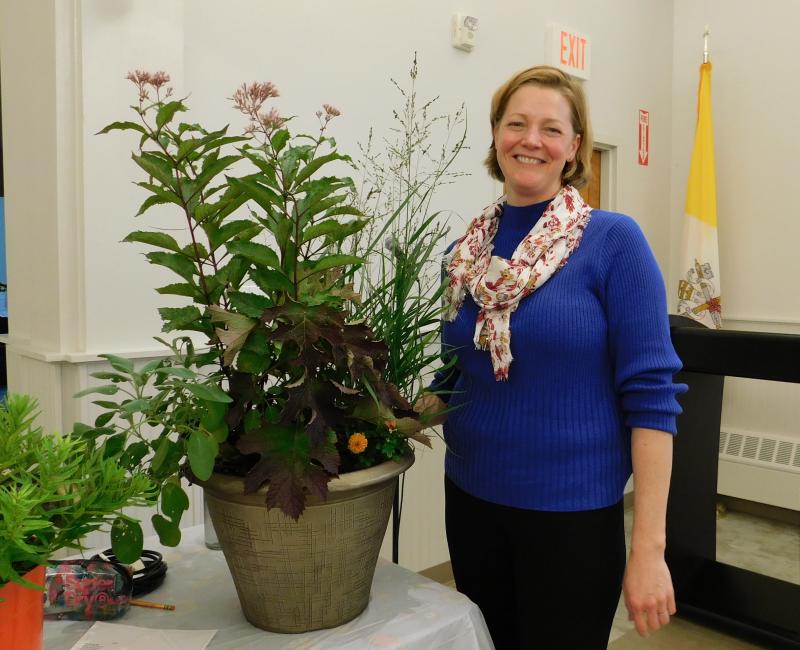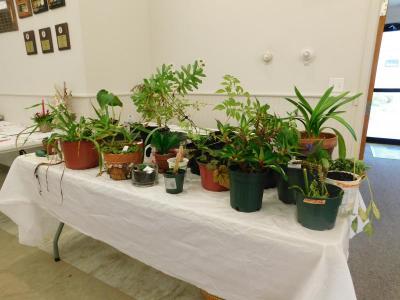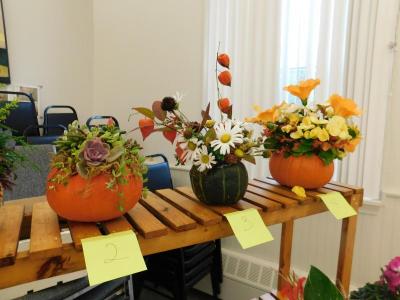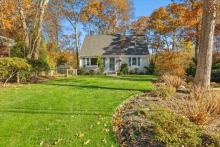Local color: Garden Club talks native plants
When designing a garden, more and more people are looking beyond aesthetics to the environmental impact of their creation.
As Master Gardener Michele Fronk Schuckel explained to the Wareham Garden Club at their Oct. 10 meeting, native plants provide beauty and visual interest alongside a bevy of benefits to the natural world.
Schuckel, a garden designer who specializes in native plants, defines native plants as species that occur naturally in the place they evolved. Native plants usually are more resilient and require less watering because they are living in the place they are best suited for.
“I like to think of native plants a lot like a language,” Schuckel said, explaining that like a Boston accent, native plants can represent the unique character of a specific place.
Additionally, native plants serve as food and shelter for countless species of insects, birds, and animals. White oaks support 534 species of butterflies and moths.
Schuckel said she thinks of providing food and shelter as the job of plants. A plant with no holes in its leaves or petals hasn’t done its job.
Bellflower, with its bright red blooms, attracts and feeds hummingbirds, while the Eastern redbud tree provides food and shelter to bees in the early spring. The shagbark hickory is an especially important resource for bats.
For those looking to dip their toe into more ecologically conscious gardening, Schuckel recommends planting an oak tree or native fruit tree, using native hedges for screening, or putting out a bird bath (and changing the water every two or three days).
To learn more about native plants, go to wildflower.org, or check out the books “Native Plants for New England Gardens” by Mark Richardson and Dan Jaffe or “Bringing Nature Home” by Douglas Tallamy. For more about Schuckel and her business, Natural Selections, go to naturalselectionsgardens.com.
The Wareham Garden Club was established in 1938, and now has more than 80 members who share an interest in gardening and work to beautify the town through plantings and holiday wreaths. The members also exchange plants, enter arrangements into competitions, and work to learn and teach about conservation, including gardens’ impact on wildlife. The club provides several scholarships each year.
“One of the best things for the mind, the soul, and the spirit is working with plants,” said Diane Cook, the second vice-president of the club.
The group shares those therapeutic benefits with seniors each month during garden therapy,
For more about the Garden Club, go to www.warehamgardenclub.com.

















